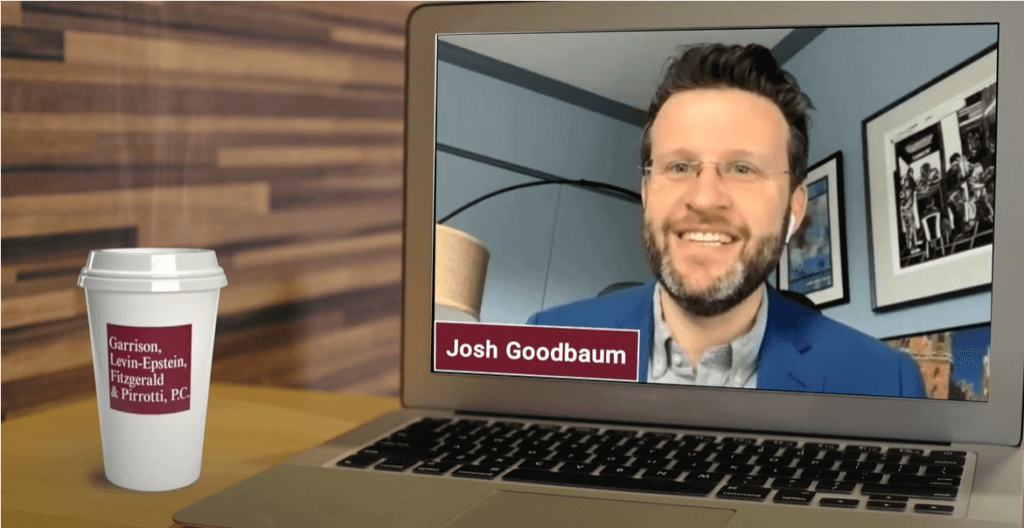Amanda DeMatteis: Hi Josh.
Josh Goodbaum: Hi, Amanda. What are we talking about today?
DeMatteis: I thought we would talk a bit about COVID-19 in the workplace, and although we’ve been talking about that so much, back on May 28th, 2021, we got some really good guidance from the Equal Employment Opportunity Commission about a lot of the topics that you and I have been chatting about and how COVID-19 has impacted the workplace generally and certainly employees in Connecticut. So I thought we would chat about that and give some people the latest information that we have at this point.
Goodbaum: Yeah, so the big question people are asking us a lot and googling a lot is, “Can my employer force me to get vaccinated?” And not to toot our own horns but we were right about that. The answer is yes. The EEOC, which is a federal agency that administers federal anti-discrimination laws said: Yes, an employer can require its employees, who are entering its workplace, to be vaccinated, subject to two important exceptions we’ve talked about before – that is, people with disabilities and people with sincerely held religious beliefs. Those two groups of folks can be entitled to an accommodation under certain circumstances, which is a pretty individualized inquiry. The EEOC said a subsidiary thing, which is if employers can force their employees to get vaccinated, then they can also offer incentives for employees to get vaccinated and to provide the record of vaccination, what a lot of people are calling a vaccine passport, that little card people got if and when they got vaccinated. So, you know, this is what we’ve been saying, but this confirms from an important source of authority that indeed that is the state of the law at the moment.
An important caveat here though, in addition to the disability and religious accommodation caveats, is that this is a pronouncement about federal anti-discrimination law only. This doesn’t say anything about other federal laws over which the EEOC does not have jurisdiction – OSHA, for example, is one that comes to mind. Nor does the EEOC say anything about state law. So employers can under federal law require employees to be vaccinated, but a state, we think, could prohibit employers from having that requirement. You would be most likely in conservative states; I don’t tend to see that happening in Connecticut; it’s relatively difficult to imagine that the General Assembly in Connecticut would prohibit employers from requiring vaccinations, but it is at least legally possible. So that’s an important update that we learned and hopefully useful to all you folks out there who are thinking about your relationship with your employer vis-a-vis getting vaccinated.
DeMatteis: Perfect. Happy we were right on that, Josh, but good to get some guidance from the EEOC. Glad we could share that information with you. We hope this is helpful, and we’ll see you next time.
Goodbaum: Thanks, everybody.

